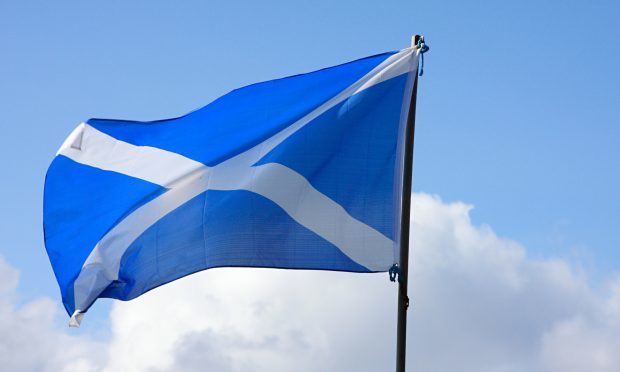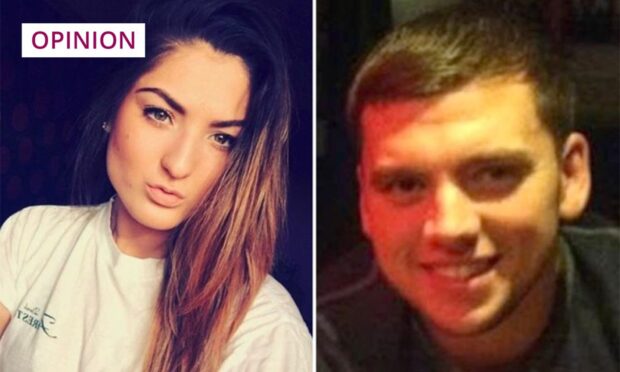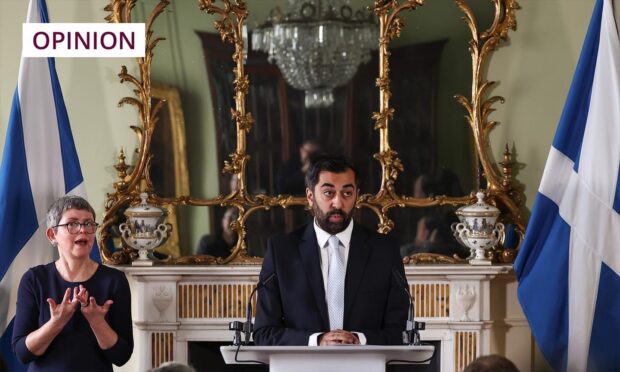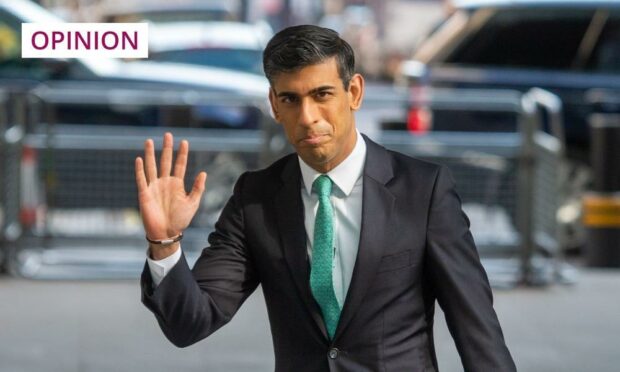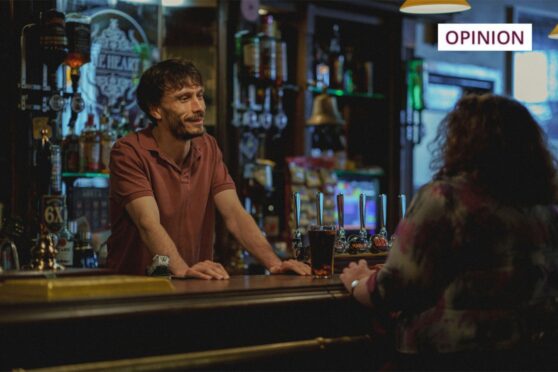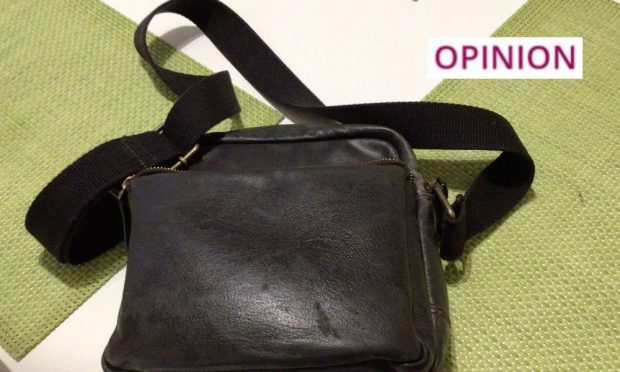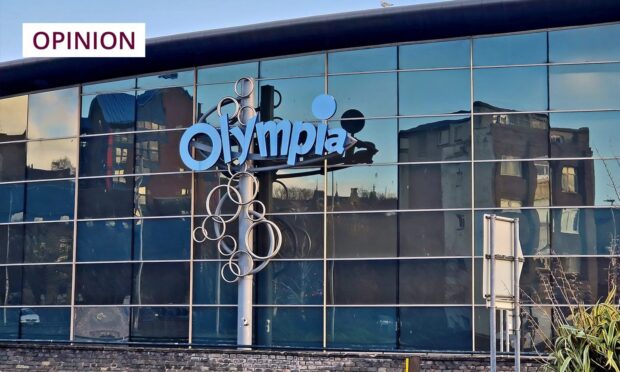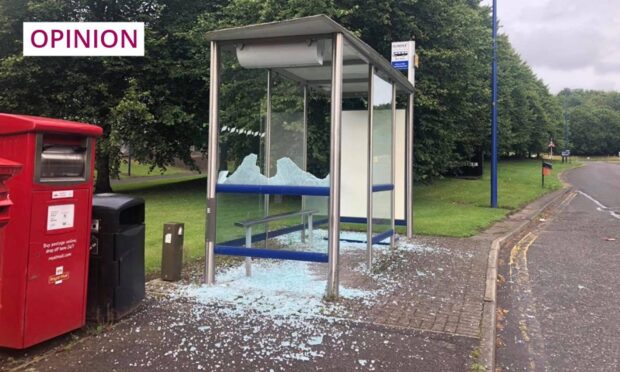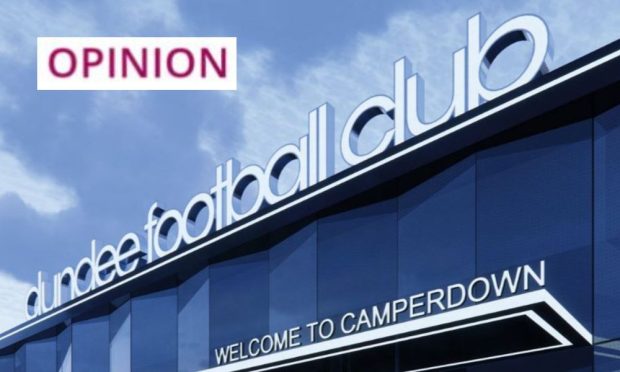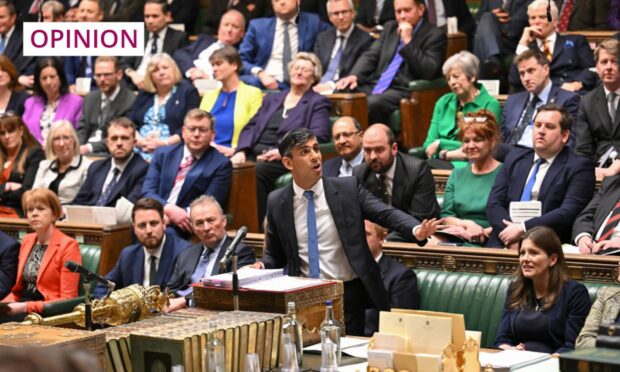Sir, – It is frequently said the SNP is not Scotland, and speaks and acts only for the SNP.
So why do they think they have the right to steal the Scottish flag? The flag belongs to the Scottish people, not the SNP. Perhaps Ms Sturgeon or her supporters could explain.
Moira Bowman.
40 Collingwood Street,
Barnhill.
Who owns Scottish Saltire?
Sir, – Watching some old Scottish News recordings has prompted me to ask, “Who owns the Scottish Saltire?” Perhaps your readers can enlighten me?
Bob Thomson.
Kinloch Street,
Ladybank.
Racism in football could do lasting damage
Sir, – I was saddened to read about alleged racism at last week’s Dundee derby.
Suffice to say a player’s colour, religion or sexual preferences shouldn’t matter to any true football fan. What should matter is that players are fit, healthy and talented, and want to play for their team – and will do their best to be good ambassadors for their club off the field.
Like millions of others I love watching brilliant footballers such as Raheem Sterling, Romelu Lukaku, Anthony Martial and Marcus Rashford, to name just a few.
I hate to say it but, due to a combination of racism, religious bigotry and homophobia, I believe some values may become lost to the beautiful game.
A recent FA Cup match in England was abandoned due to a racist incident and, in other matches, play was suspended, and came within a whisker of being abandoned, under the “three warnings rule”.
The reality is professional football has become seriously expensive to watch with clubs such as Arsenal charging about £60 to watch a game.
Big teams in England often play to crowds of in excess of 60,000 for league games and I dare say if any big match gets abandoned, spectators won’t get a refund. It would definitely impact on the size of crowds if abandonments caused by race-related incidents become common.
Big matches are nearly always screened live by pay as you go television channels, and if suspensions of games under the three-warnings rule happen regularly it will seriously disrupt the scheduling of other television programmes.
That costs big money, too, and may cause television companies to stop offering lucrative contracts to screen live football.
All this would likely have an adverse impact on football as a business.
If that happens it could dissuade professional clubs from signing players from ethnic minorities because paying huge transfer fees to sign such players may be considered as too much of a business risk by football clubs if matches are abandoned or suspended on a regular basis.
Realistically what working man will risk paying £60 or more (with no chance of a refund) to watch a match that could end up being suspended or abandoned for reasons that have nothing to do with the weather? And what club could or would continue to spend hundreds of millions of pounds on transfer fees and wages for players that may, quite rightly, walk off the field of play?
Kenneth Brannan.
42 Greenlee Drive,
Dundee.
Cynical flaws in health plan
Sir, – I have to agree with Harry Key (“Education is key in third world”, Letters, January 4) that clean water, education, doctors and nurses have done far more for the peoples of the world than all the Christian missionaries.
But I suspect if Boris Johnson is to achieve his recruitment promises for health professionals in the UK we should perhaps brace ourselves for a resurgence in the exodus of Christian missionaries keen to refill the gaps left by these incoming health professionals.
It is utterly cynical to expect shortfalls in our NHS staffing, created by austerity policies of successive governments, to be addressed now by recruitment from outside the UK, particularly if such recruitment is targeted at healthcare professionals whose education has been paid for and who are working in societies where health care standards are generally well below those we enjoy here.
It is equally cynical to have an immigration policy directed solely at what the government identifies as desirable professions, but which excludes those with lesser skills whose contribution to our society, economy and welfare is just as valuable.
Murray SB Duncan.
5a West Huntingtower,
Perthshire.
Healing ministry of medicine
Sir, – I’m inclined to agree with Harry Key (Letters, January 4).
My grandfather, George Henderson, was a missionary in India, but began to realise his wife (my grandmother) was helping the local people more in her role as a midwife and, at the age of 40, decided to return to Scotland to train as a doctor.
He subsequently built and established a leprosy hospital in rural India
Although he may have saved some souls with his ministry, I’m certain he saved and improved more lives with his medicine.
Edie Allan.
Mansefield,
Tealing.
Caring for others a team effort
Sir, – In reply to Harry Key of Largoward (Letters, January 4), medical staff and Christian missionaries are not mutually exclusive.
It is not one or the other, and some Christians, as at the Steeple Church in Dundee, are also doctors.
My mother had Parkinson’s Disease for a long time.
By 2012 she had carers coming in, neighbours coming in and medics looking after her, eventually at St Andrews Community Hospital hospice unit.
The local church – the people not the building – were very supportive.
Doubtless these people were also nationalists, unionists, leave and remain voters working together, which makes me very angry when I hear political leaders talk about a divisive Scottish independence referendum in 2014.
We all have a part in ending division.
Peter Ovenstone.
6 Orchard Grove,
Peterhead.
This is what Scotland rejects
Sir, – A quite astonishing letter from Douglas Cowe (“Gentle persuasion won’t win Indy argument”, Letters, January 2).
He lambasts the SNP for not providing “the people of Scotland with realistic, costed, economic facts and figures”, goes on to say that “Scotland will endure decades of austerity, reduced services and increased taxes…and supporters seem not to care, (they) are happy to commit my country to an isolated, backward, economically challenged regime…sensible, responsible, patriotic Scots (should) ensure that our people are not harmed by this senseless, reckless behaviour”.
Does this not describe, very accurately, what the people of Scotland voted decisively to reject in the 2016 Brexit referendum, and again overwhelmingly dismissed in the recent general election?
Yet it is being imposed upon us by the Westminster Conservative Government which achieved only six out of 59 seats in Scotland.
Hardly a mandate for as catastrophic an intervention as Mr Cowe so accurately describes.
Les Mackay.
5 Carmichael Gardens,
Dundee.
